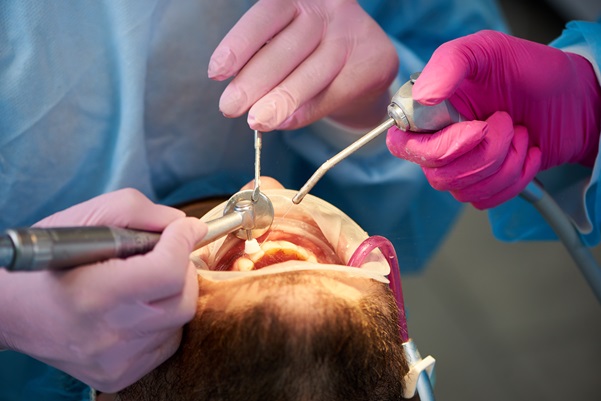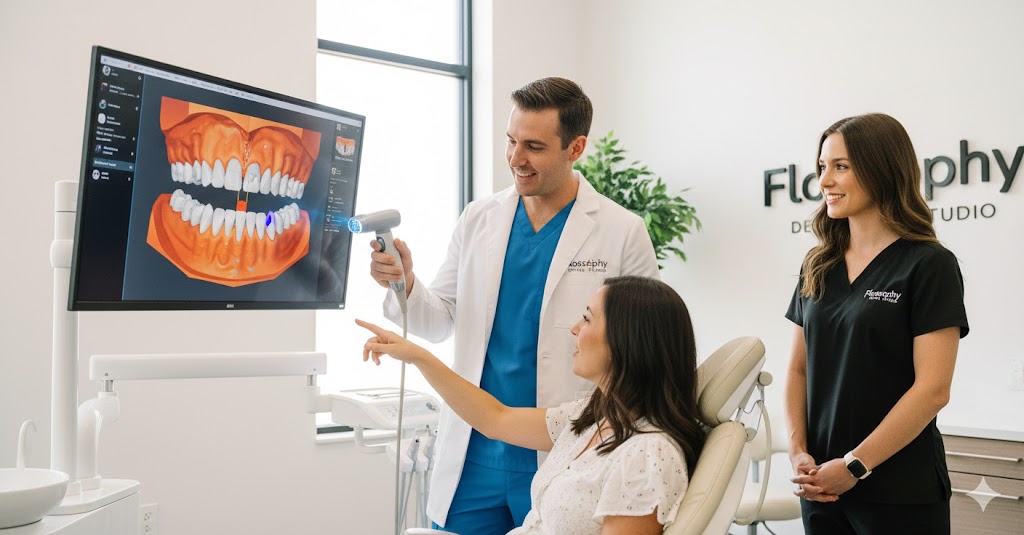$29 Emergency Exam - Walk-Ins Welcome - Same-Day Dental Appointments Available

A root canal is one of the most common dental procedures, designed to relieve pain and save teeth that are severely decayed or infected. While the treatment itself is often feared, it’s a relatively routine procedure with a high success rate. After undergoing this treatment, one of the most frequently asked questions is: Should I brush my teeth afterward?
The short answer is yes, but with care. Maintaining good oral hygiene after this treatment is essential for healing and preventing future complications. In this blog, we’ll explore why brushing is important after a root canal, how to do it safely, and what else you can do to support your recovery.
Understanding a Root Canal
Before we dive into brushing habits, let’s briefly recap what a root canal involves.
It is performed when the pulp—the soft tissue inside your tooth—becomes infected or inflamed. The dentist or endodontist removes the damaged pulp, cleans and disinfects the inside of the tooth, and then fills and seals it. Often, a crown is placed afterward to protect the tooth and restore its function.
Though the procedure itself is relatively painless due to modern techniques and anesthesia, the area may remain tender for a few days following treatment. That’s where oral hygiene plays a crucial role.
Why Oral Hygiene Matters After a Root Canal
Good oral hygiene helps in several key ways post-procedure:
1. Preventing Infection
Even though the root canal removes infected tissue, your mouth still contains bacteria. Brushing gently keeps your teeth and gums clean, preventing new infections from forming in or around the treated tooth.
2. Promoting Healing
A clean mouth heals faster. Brushing reduces plaque buildup and removes food particles that could otherwise lead to irritation or complications.
3. Maintaining Overall Dental Health
If you had undergone this treatment once, there’s a chance you may need others in the future if oral care is neglected. Brushing regularly helps preserve the health of your remaining teeth and gums.
Can You Brush Immediately After a Root Canal?
Yes, you can brush your teeth after a root canal, but with caution.
Here are a few key tips:
– Wait for the Numbness to Wear Off
After this procedure, your mouth will remain numb for a few hours. Wait until the numbness wears off before brushing to avoid accidentally biting your tongue or cheek.
– Be Gentle Around the Treated Tooth
Use a soft-bristled toothbrush and avoid applying too much pressure around the area. Brush in gentle circular motions, especially near the treated site.
– Avoid Brushing the Temporary Filling Too Vigorously
If your dentist placed a temporary filling, brushing too aggressively may dislodge it. Until your permanent crown is placed, treat that tooth delicately during your oral care routine.
How to Brush After a Root Canal: Step-by-Step
- Use a Soft-Bristled Toothbrush: Choose a soft-bristled brush that won’t irritate sensitive areas.
- Opt for Fluoride Toothpaste: Fluoride helps protect the rest of your teeth and supports enamel strength.
- Go Gentle: Don’t scrub too hard. Brush the area like you’re massaging it rather than scrubbing it clean.
- Brush All Areas: Don’t just focus on the treated tooth. Clean all surfaces—front, back, chewing surfaces—of every tooth.
- Avoid Hot or Cold Water: Your tooth may be sensitive to temperature. Use lukewarm water to rinse your mouth.
- Rinse Thoroughly: After brushing, rinse your mouth with water or a dentist-recommended antiseptic mouthwash to reduce bacteria and soothe the area.
What About Flossing?
Flossing is another important aspect of oral hygiene, even after a root canal. However, just like brushing, it should be done gently.
- Be careful around the treated tooth, especially if a temporary filling is in place.
- Avoid snapping the floss down into the gums.
- Use a slow, gentle sawing motion to ease the floss between your teeth.
Flossing helps remove debris and plaque that a toothbrush can’t reach, reducing the risk of gum disease and protecting adjacent teeth.
Additional Aftercare Tips
Beyond brushing and flossing, here are some aftercare tips that can support your healing:
1. Avoid Hard or Sticky Foods
Stay away from crunchy, hard, or chewy foods until your dentist places a permanent crown. These foods could damage the temporary filling or cause unnecessary pressure on the treated tooth.
2. Stay Hydrated
Drink plenty of water to keep your mouth clean and promote healing. Water helps wash away food particles and bacteria.
3. Use a Mouthwash
Antibacterial or saltwater rinses can reduce bacteria and soothe inflammation. Always ask your dentist before using any mouthwash post-procedure.
4. Pain Management
It’s normal to feel mild discomfort for a day or two. Over-the-counter pain medications like ibuprofen can help. Avoid aspirin as it may increase bleeding.
5. Attend Follow-Up Appointments
Make sure to attend your follow-up visit. Your dentist will check the healing progress and typically place a crown to protect the tooth permanently.
Common Mistakes to Avoid
Here are some common mistakes patients make after a root canal that you should steer clear of:
- Brushing too aggressively
- Neglecting oral care out of fear of damaging the tooth
- Skipping follow-up dental appointments
- Chewing on the treated side too soon
- Using alcohol-based mouthwashes that can irritate the area
When to Call Your Dentist
While some discomfort is expected, there are instances when you should reach out to your local dentist immediately:
- Severe or worsening pain after a few days
- Swelling in the face or gums
- Persistent bad taste or smell (which may indicate infection)
- The temporary filling falls out or feels loose
- Allergic reactions to medication
Prompt attention can prevent further issues and ensure the tooth heals properly.
Brushing your teeth after this dental procedure is essential. Proper oral hygiene supports healing, prevents reinfection, and helps maintain long-term dental health. The key is to be gentle, use the right tools, and follow your local dentist’s guidance.
Your root canal has done its job by removing infection and saving your tooth. Now it’s your turn to care for it and make sure it stays healthy for years to come. With good brushing habits, a little patience, and professional follow-up, you’ll be back to smiling confidently in no time.




